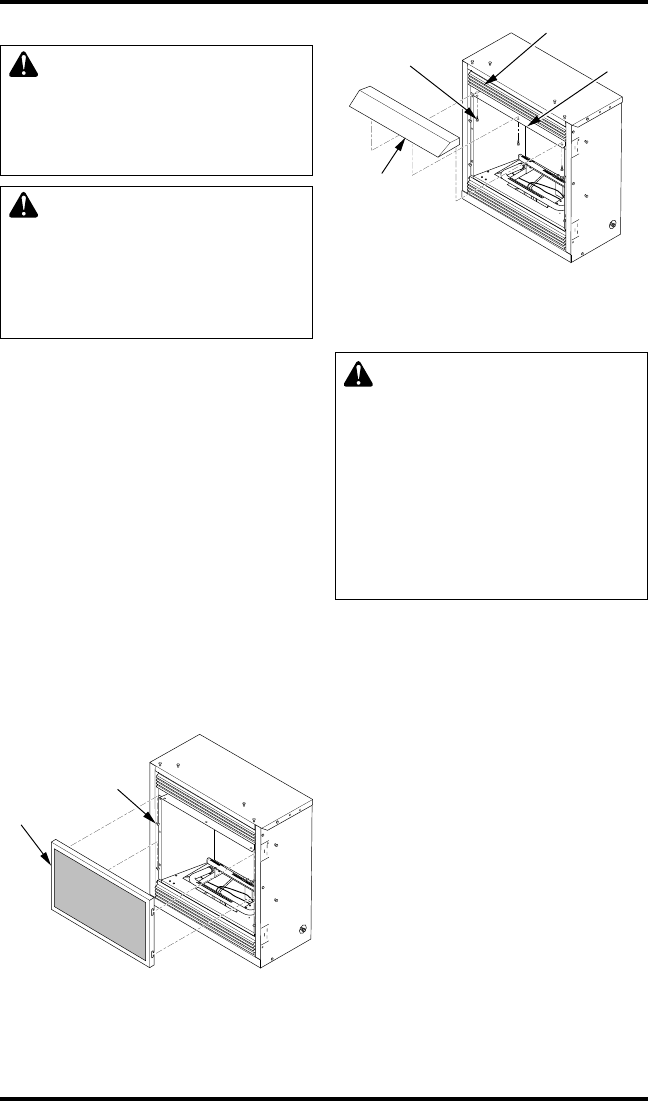Special offers from our partners!

Find Replacement BBQ Parts for 20,308 Models. Repair your BBQ today.

www.desatech.com 111244-01C
6
HOOD ASSEMBLY
WARNING: Always have
screen in place before operating
fireplace. This prevents exces-
sive temperatures on fireplace
surfaces.
WARNING: Failure to position
the parts in accordance with these
diagrams or failure to use only
parts specifically approved with
this fireplace may result in prop-
erty damage or personal injury.
Tools Required:
• Phillips screwdriver • slotted screwdriver
• 5/16" hex wrench • scissors
1. Lift fireplace screen up and pull out to remove
(see Figure 2). Set screen aside until installa-
tion has been completed.
2. Cut two plastic straps to remove the log from
the firebox cavity. Set log aside.
3. An optional blower is available. See Acces-
sories, pages 40 and 41. Install optional blower
now. Follow installation instructions provided
with blower and see page 14 or 15, depend-
ing on your installation.
4. Locate four black phillips sheet metal screws
in hardware packet.
5. Slide hood between louver and firebox top and
align screw holes.
6. Insert screws as shown in Figure 3. Tighten
screws firmly.
Figure 2 - Removing and Installing
Screen
Screen
Shoulder Screw
Figure 3 - Assembling Hood
Hood
Sheet Metal
Screws
Firebox
Top
Louver
AIR FOR COMBUSTION
AND VENTILATION
WARNING: This fireplace
shall not be installed in a con-
fined space or unusually tight
construction unless provisions
are provided for adequate com-
bustion and ventilation air. Read
the following instructions to in-
sure proper fresh air for this and
other fuel-burning appliances in
your home.
Today’s homes are built more energy efficient than
ever. New materials, increased insulation, and new
construction methods help reduce heat loss in
homes. Home owners weather strip and caulk
around windows and doors to keep the cold air out
and the warm air in. During heating months, home
owners want their homes as airtight as possible.
While it is good to make your home energy effi-
cient, your home needs to breathe. Fresh air must
enter your home. All fuel-burning appliances need
fresh air for proper combustion and ventilation.
Exhaust fans, fireplaces, clothes dryers, and fuel
burning appliances draw air from the house to
operate. You must provide adequate fresh air for
these appliances. This will insure proper venting
of vented fuel-burning appliances.


















